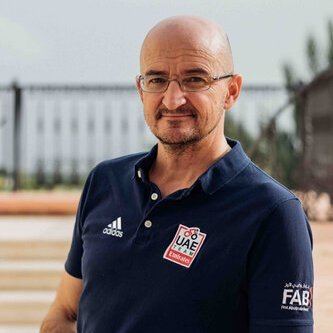This video clip is from episode #201 – Deep dive back into Zone 2 with Iñigo San-Millán, Ph.D. (Pt. 2), originally released on March 28, 2022.

Show Notes
Do any supplements increase mitochondrial function?
- Peter asks what other supplements might improve mitochondrial function
- Iñigo doesn’t think we have the answer and we need to be cautious about how we interpret the data
“If you look at so many metabolites at the cellular level and mitochondrial level, they’re downregulated with aging”— Iñigo San-Millán
- The question is why are these metabolites downregulated?
- Is the mitochondria per se downregulated with age?
- Therefore it doesn’t need as much NAD and other metabolites?
- NAD is very important in glycolysis; it is needed to maintain redox status
- NAD is utilized to convert glycerol-3-phosphate → 2,3-phosphoglycerate
- When NAD is depleted the only thing that rescues it is lactate
- Is taking NAD going to increase longevity? Iñigo doesn’t think so
“Because longevity is not just one supplement or two or three or four or five. It’s a compendium on incredible amount of things that happen at the cellular level.”— Iñigo San-Millán
- He doesn’t think 1 supplement will do this
- Remember when everybody thought resveratrol was the thing for longevity?
- Studies in mice showed in increased longevity by 50%
- A lot of people started to take in resveratrol when they were 50, and they’re dead now
- It doesn’t increase longevity in humans
Could supplements favor the metabolism of cancer cells?
- Peter asks if there is a scenario where too much NAD could be harmful
- In cancer patients, if you doubled their NAD levels, wouldn’t this favor the tumor’s metabolism?
- Iñigo has done this pilot study in mice; he has done a lot of research on cancer metabolism
- We know glycolysis is key in cancer cells and NAD is absolutely indispensable for that
- Iñigo had done a pilot study in a few mice (it’s not published yet) where mice were given triple-negative breast cancer tumors; they tested 2 groups (4 mice each)
- These tumors grow very, very fast
- 1) One group got plain water
- 2) The other group got nicotinamide riboside (NR, a NAD precursor)
- You cannot take NAD, you can only take a precursor
- They observed tumor growth for 23 days
- They saw a 15% increase in tumor growth in the NAD group
- They have statistical significance even with only 4 mice in each group; the results were consistent
- He would love to follow this up using more mice

Iñigo San-Millán, Ph.D.
Iñigo San-Millán earned his doctorate at the University of the Basque Country School of Medicine. He did his postdoctoral research at the Harvard Medical School Cancer Research Program. Currently he is an Assistant professor in the School of Medicine at the University of Colorado School – Colorado Springs. His research and clinical work focuses on: exercise metabolism, cancer metabolism, metabolic health, nutrition, sports performance, diabetes, and critical care.
Dr. San-Millán has worked for the past 25 years with many professional teams and elite athletes worldwide across multiple sports, this includes: soccer, cycling, football, basketball, track and field, rowing, triathlon, swimming, and Olympic training. He has been a consultant in exercise physiology and sports medicine to international organizations such as the US Olympic Committee. He has pioneered the development of new methodologies for monitoring athletes at the metabolic and physiological level. He developed the first method to indirectly measure mitochondrial function and metabolic flexibility/ He co-developed the first methodology to deploy metabolomics assessment to professional sports as well as the first method to indirectly measure skeletal muscle glycogen in a non-invasive manner using high frequency ultrasound. Currently, he is the Director of Performance for Team UAE Emirates cycling team and the personal physiologist and coach of 2020 and 2021 Tour de France winner Tadej Pogacar.
Although now a recreational athlete, he used to be a competitive athlete. He played soccer for 6 years for the developmental academy of Real Madrid soccer team. He also raced as a low-key, professional cyclist for 2 years. [Dr. San-Millan’s Website]
Twitter: @doctorIñigo



